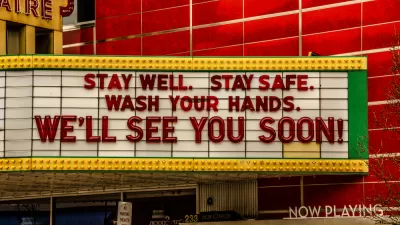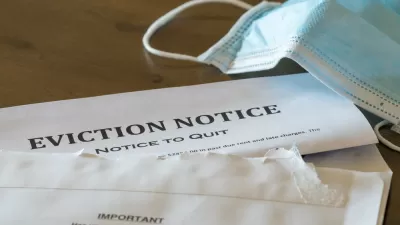Two urban and regional planning faculty at the University of Michigan's Taubman College, Assistant Professor Robert Goodspeed and Professor Emerita Margaret Dewar, were awarded a grant to study data on evictions in Michigan.
Two urban and regional planning faculty at the University of Michigan's Taubman College of Architecture and Urban Planning, Assistant Professor Robert Goodspeed and Professor Emerita Margaret Dewar, were awarded a grant to study data on evictions in Michigan. The project, “Michigan Evictions: Assessing Data Sources and Exploring Determinants,” is a partnership with the Michigan Advocacy Program, which provides free or low-cost access to the justice system through direct legal help and statewide advocacy. The project will receive funding through the 2019 Community-Academic Research Partnerships Grant Program, Research on Strategies to Prevent and Alleviate Poverty in Michigan — sponsored Poverty Solutions at the University of Michigan and the Detroit Community-Academic Urban Research Center.
Each year, tens of thousands of Michigan households lose their homes as a result of court-ordered evictions, and Michigan cities have some of the highest eviction rates in the nation. The goal of Goodspeed and Dewar’s project is to analyze available data to better understand the prevalence, patterns, and causes of evictions in Michigan, and inform decisions by social services, legal services, and policymakers to address the problem — while also contributing to the growing national research literature on the topic.
The project has three primary aims:
1. Evaluate the quality of data obtained from the Eviction Lab and state and local court records by comparing them in three illustrative counties.
2. Conduct an exploratory analysis of determinants of eviction statewide using Eviction Lab Data at the census block group level.
3. Provide recommendations for the further development of policies and programs to reduce evictions in Michigan, as well as recommendations for improved data collection and analysis.
Poverty Solutions is a U-M institute that encourages multidisciplinary solutions to alleviating poverty through solution-focused partnerships and funding for research. Poverty Solutions collaborates with the Detroit Community-Academic Urban Research Center, a health equity participatory research group, to provide funding for research into various aspects of poverty in the United States. Dewar and Goodspeed’s project is one of nine that has been awarded funding through the 2019 Poverty Solutions grant.
FULL STORY: Goodspeed and Dewar Receive Grant to Study State's High Eviction Rate

Alabama: Trump Terminates Settlements for Black Communities Harmed By Raw Sewage
Trump deemed the landmark civil rights agreement “illegal DEI and environmental justice policy.”

Planetizen Federal Action Tracker
A weekly monitor of how Trump’s orders and actions are impacting planners and planning in America.

The 120 Year Old Tiny Home Villages That Sheltered San Francisco’s Earthquake Refugees
More than a century ago, San Francisco mobilized to house thousands of residents displaced by the 1906 earthquake. Could their strategy offer a model for the present?

In Both Crashes and Crime, Public Transportation is Far Safer than Driving
Contrary to popular assumptions, public transportation has far lower crash and crime rates than automobile travel. For safer communities, improve and encourage transit travel.

Report: Zoning Reforms Should Complement Nashville’s Ambitious Transit Plan
Without reform, restrictive zoning codes will limit the impact of the city’s planned transit expansion and could exclude some of the residents who depend on transit the most.

Judge Orders Release of Frozen IRA, IIJA Funding
The decision is a victory for environmental groups who charged that freezing funds for critical infrastructure and disaster response programs caused “real and irreparable harm” to communities.
Urban Design for Planners 1: Software Tools
This six-course series explores essential urban design concepts using open source software and equips planners with the tools they need to participate fully in the urban design process.
Planning for Universal Design
Learn the tools for implementing Universal Design in planning regulations.
Clanton & Associates, Inc.
Jessamine County Fiscal Court
Institute for Housing and Urban Development Studies (IHS)
City of Grandview
Harvard GSD Executive Education
Toledo-Lucas County Plan Commissions
Salt Lake City
NYU Wagner Graduate School of Public Service





























